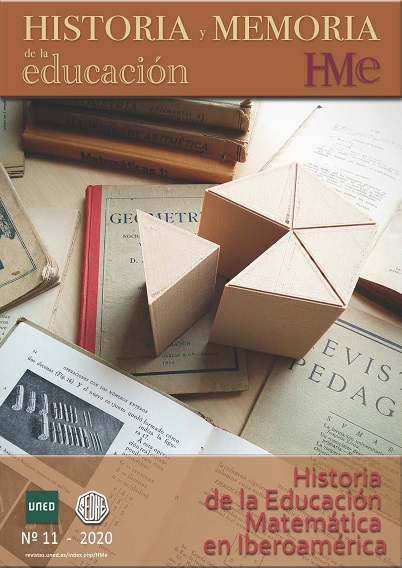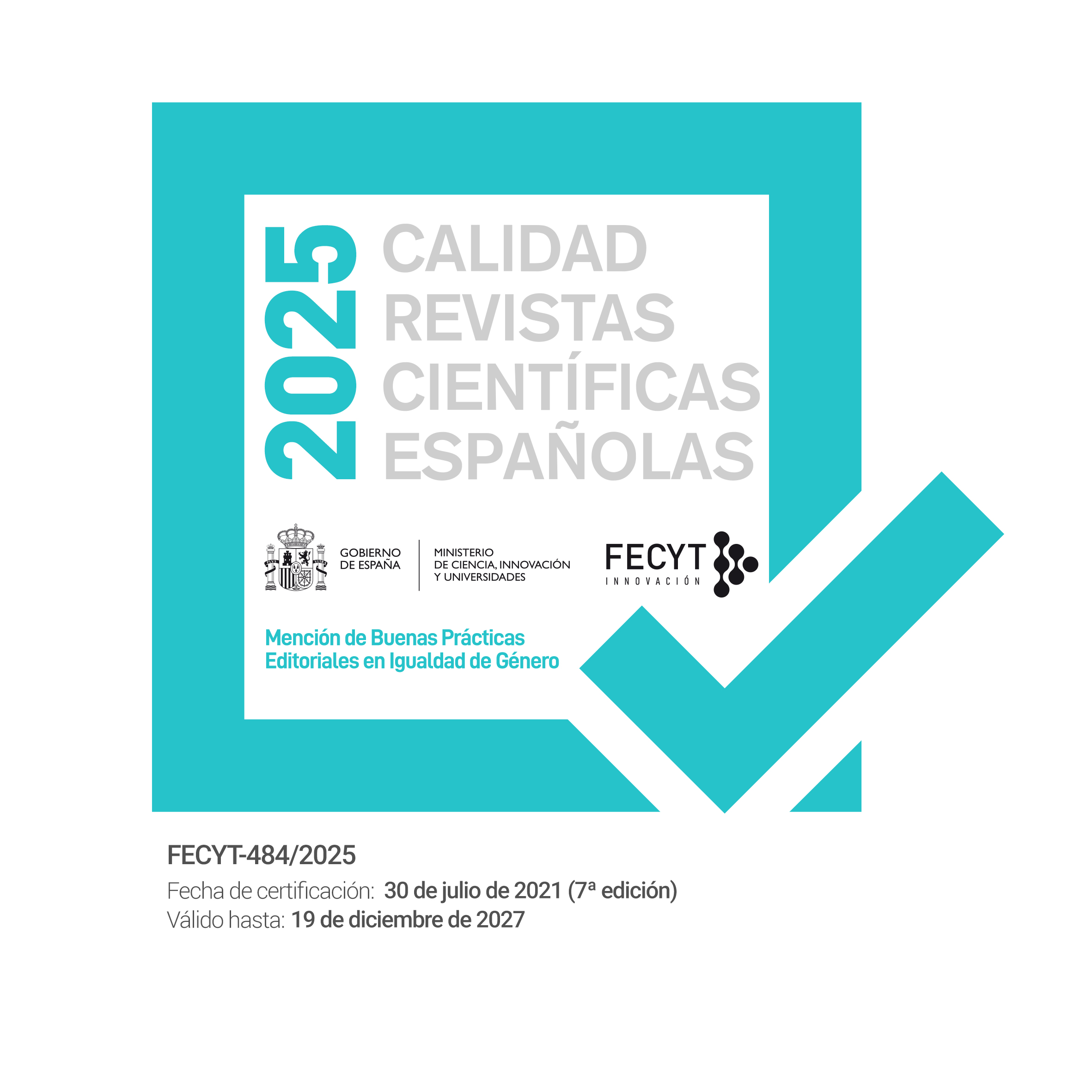Ibero American Heritage in Mathematics and Mathematics Education. An overview from 40 notes
DOI:
https://doi.org/10.5944/hme.11.2020.23962Keywords:
Scientific work, Mathematics education, History of mathematics and mathematics education, Ibero America, Thinking and expressing mathematics in Spanish.Abstract
This document presents a selection of data and events that have taken place in Ibero American countries on mathematics and mathematics education. Using a diachronic approach, we describe the presence and diffusion of mathematical and educational knowledge in the history of science from the fifteenth century to the present day, exemplified by a selection of ideas, knowledge and thought expressed and disseminated in Spanish. The work has been carried out with the collaboration of a large group of professors and researchers in mathematics and mathematics education from different Ibero American countries and communities. The Ibero-American heritage shown here underlines a historical constant of these countries, exemplified by its scientific development over the course of time. The action of its protagonists is presented in a comprehensive and structured historical framework, which helps to interpret, identify and describe the scientific and educational activity that that has taken place. This includes studies and academic production; materials that have been elaborated; the editing and circulation of scientific journals; congresses and symposiums that have been held; commissions that have been constituted; and the publication of books and other texts. The true protagonists of this activity are the groups, societies and experts, together with the institutions that are helping to form future teachers, mathematicians and researchers. The work Ibero American Heritage in Mathematics and Mathematics Education tells the story of the development and dissemination of these disciplines in the Ibero-American community with the contribution of institutions, societies, groups, communities and individuals.
Downloads
References
Castro, Américo. Iberoamérica, su historia y su cultura. CA: Dryden Press, 1954.
Carrillo Gallego, Dolores. La Metodología de la aritmética en los comienzos de las Escuelas Normales (1838-1868) y sus antecedentes. Murcia: Universidad de Murcia, 2005.
Cerdá, Thomas de. Liciones de Mathematica o Elementos Generales de Arithmetica y Algebra. Barcelona: D. Francisco Suriá, Impressor de la Real Academia, 1758.
Cortes Generales Españolas. Constitución Política de la Monarquía Española. Cádiz á 19 de Marzo de 1812, grabada y dedicada a las Cortes por D. José María de Santiago, grabador de Camara y R1. Estampilla de S.M. Año de 1822.
Gómez Chacón, Inés María. El legado académico, científico y educativo de Miguel de Guzmán. Conferencia no publicada, Universidad Internacional Menéndez Pelayo, 2005.
López Piñero, José Mª. Ciencia y técnica en la sociedad española de los siglos XVI y XVII. Barcelona: Labor, 1970.
López Piñero, José Mª. Thomas F. Glick, Víctor Navarro Brotóns y Eugenio Portela Marco. Diccionario histórico de la Ciencia Moderna en España vol. I (A-L). Barcelona: Ediciones Península, 1983.
López Piñero, José Mª. Thomas F. Glick, Víctor Navarro Brotóns y Eugenio Portela Marco. Diccionario histórico de la Ciencia Moderna en España vol. II (M-Z). Barcelona: Ediciones Península, 1983.
Maz, Alexander. Los números negativos en España en los siglos XVIII y XIX. Granada: Universidad de Granada, 2005.
Maz, Alexander, Manuel Torralbo y Luis Rico (eds.). José Mariano Vallejo, el matemático ilustrado. Una mirada desde la Educación Matemática. Córdoba: Universidad de Córdoba, 2006.
Organización de Estados Iberoamericanos. ¿Qué es la OEI?. https://www.oei.es/acercade/que-es-la-oei
Peralta, Javier. La matemática española y la crisis de finales del siglo XIX. Madrid: Nivola, 1999.
Picado Alfaro, Miguel. El Sistema Métrico Decimal en libros de texto de matemática en España durante la segunda mitad del siglo XIX. Granada: Universidad de Granada, 2012.
Quintana, Manuel José. Informe de la Junta creada por la Rejencia para proponer los medios de proceder al arreglo de los diversos ramos de la Instrucción Pública. Madrid: Biblioteca de Autores Españoles, 1852. Tomo decimonono, 175-191
Real, Irene. La enseñanza de las matemáticas en Andrés Manjón. Granada: Centro de Estudios Pedagógicos y Psicológicos Andrés Manjón, 2008.
Red DiMa. «Manifiesto de la red DiMa por el reconocimiento de la divulgación de las matemáticas». https://wpd.ugr.es/~iemath/cms/wp-content/uploads/Manifiesto.pdf
Rey Pastor, Julio. La ciencia y la técnica en el descubrimiento de América. Cuarta Edición. Madrid: Espasa- Calpe, 1970.
Rico, Luis. «Informe sobre la participación española en ICME 12». Gaceta de la Real Sociedad Matemática Española 16, no. 1 (2013): 51-60.
Rico, Luis. «Spanish Heritage». En Proceedings of the ICME XII, editado por Sung Je Cho, 331- 341. New York, Heidelberg: Springer, 2015.
Rojas Mix, Miguel. Los cien nombres de América. Barcelona: Editorial Lumen, 1991.
Sung Je Cho (ed.). Proceedings of the ICME 12. Heidelberg, New York: Springer, 2015.
Ulloa, Pedro de. Elementos Mathematicos, tomo Iº. Madrid: Antonio Gonçalez de Reyes, 1706.
Vallejo, José Mariano. Compendio de Matemáticas Puras y Mixtas. Madrid: Imprenta Garrasayaza, 1840.
Vallejo, José Mariano. Tratado Elemental de Matemáticas. Madrid: Imprenta Garrasayaza, 1841.
Downloads
Published
How to Cite
Issue
Section
License
Authors who publish in Historia y Memoria de la Educación agree to the following terms:
- Authors retain copyright and grant the journal right of first publication with the work simultaneously licensed under a Creative Commons Attribution-NonCommercial 4.0 International that allows others to share the work with an acknowledgement of the work's authorship and initial publication in this journal.
- Authors are able to enter into separate, additional contractual arrangements for the non-exclusive distribution of the journal's published version of the work (e.g., post it to an institutional repository or publish it in a book), with an acknowledgement of its initial publication in this journal.
- Authors are permitted and encouraged to post their work online (e.g., in institutional repositories or on their website) prior to and during the submission process, as it can lead to productive exchanges, as well as earlier and greater citation of published work (See The Effect of Open Access).












